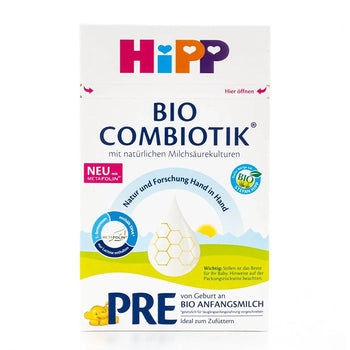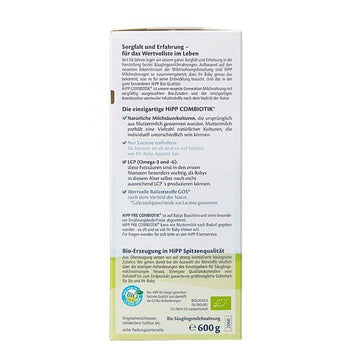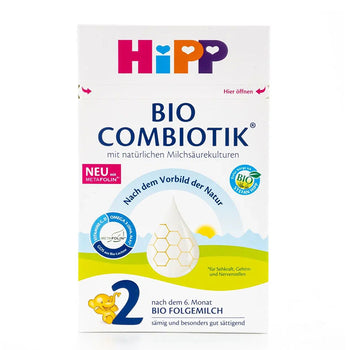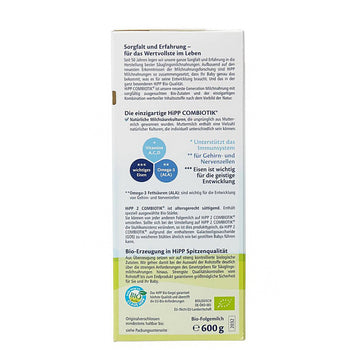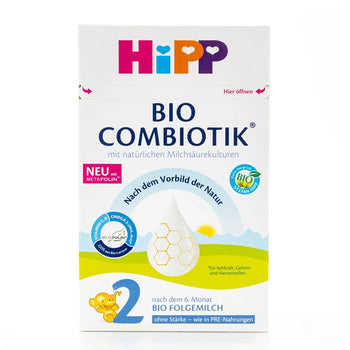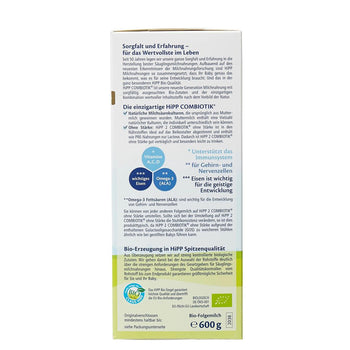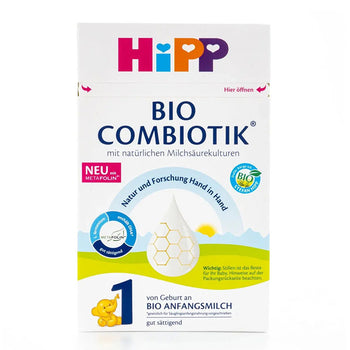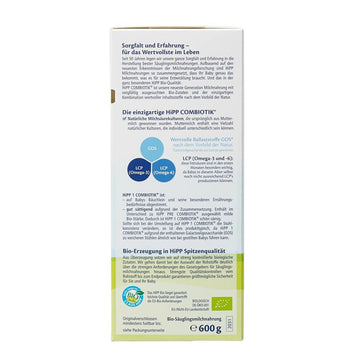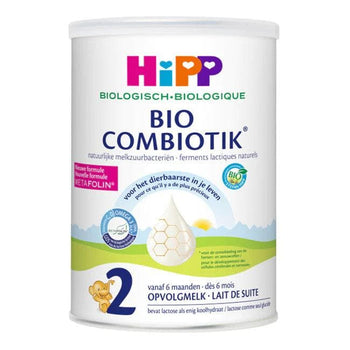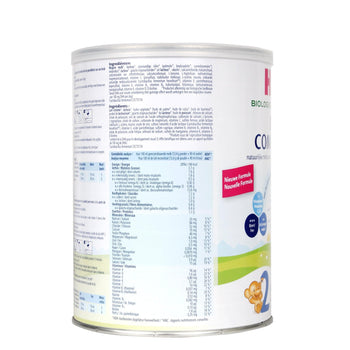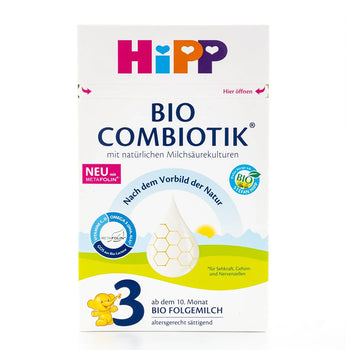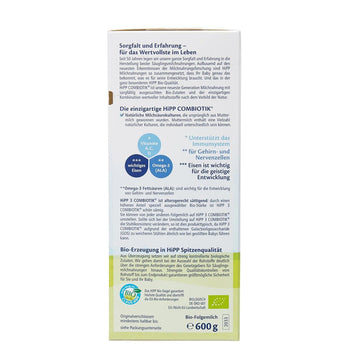As a nutritionist with over 15 years of experience in child nutrition, I've guided countless parents through the sometimes overwhelming process of selecting the right formula for their little ones. While breast milk remains the gold standard for infant nutrition, many families rely on formula either exclusively or as a supplement. Finding the right formula with the appropriate nutrient balance can make all the difference in your baby's development, comfort, and overall well-being.
The Essential Nutrients Your Baby Needs
When evaluating baby formulas, it's important to understand the key nutrients that support your baby's rapid growth and development:
Proteins: The Building Blocks
Protein is crucial for tissue growth and development. Most standard formulas contain cow's milk protein (1.8-3g per 100 kcal), but the type and processing of protein matter significantly:
● Intact proteins: Found in standard formulas
● Partially hydrolyzed proteins: Broken down partially for easier digestion
● Extensively hydrolyzed proteins: Broken down extensively for babies with milk protein sensitivity
● Amino acid-based: For severe allergies or multiple food sensitivities
Carbohydrates: Energy for Growth
Carbohydrates provide the energy your baby needs to fuel their extraordinary development. Most formulas contain:
● Lactose: The primary carbohydrate in breast milk
● Maltodextrin: Often used in specialized formulas
● Corn syrup solids or other sugars: Sometimes used in specialized formulas
Keep in mind that formulas should ideally contain 9-14g of carbohydrates per 100 kcal to mirror breast milk composition.
Fats: Critical for Brain Development
Fats comprise about 50% of calories in breast milk for good reason-they're essential for brain development and fat-soluble vitamin absorption. Look for:
● DHA and ARA: Long-chain fatty acids are important for brain and eye development
● Blend of plant oils: To achieve a fat profile similar to breast milk
● Beta-palmitate: A structured fat that some premium formulas include to improve calcium absorption and reduce constipation
● Iron: Essential for preventing anemia (standard formulas typically contain 10-12 mg/L)
● Calcium and Vitamin D: For bone development
● Prebiotics: Like GOS or FOS, to promote healthy gut bacteria
● Probiotics: Live beneficial bacteria that support digestive and immune health
Matching Formula to Your Baby's Specific Needs
One of the most common questions I receive is how to identify if a formula is suitable for a baby's specific needs. Here's a simplified approach:
For Babies with Gas, Fussiness, and Spit-up
If your baby struggles with discomfort after feeding, consider formulas with:
● Partially hydrolyzed proteins for gentle digestion
● Added prebiotics and probiotics to support gut health
● Beta-palmitate fat blends for easier absorption
Formulas like HiPP Comfort are specifically designed to address these concerns with a combination of partially hydrolyzed milk proteins and reduced lactose to soothe digestive systems.
For Babies with Constipation or Trouble Pooping
For little ones struggling with hard stools or infrequent bowel movements:
● Goat milk formulas may be easier to digest for some babies
● Formulas with prebiotic fibers can promote regular, soft stools
● Look for options with balanced fat blends that support easy digestion
Holle Goat Milk formula, for instance, contains easier-to-digest A2-rich goat milk and organic maltodextrin that promotes regular digestion.
For Babies with Milk Protein or Lactose Sensitivity
If your baby shows signs of milk protein sensitivity or lactose intolerance:
● Hypoallergenic formulas with extensively hydrolyzed proteins
● Reduced or lactose-free options
● Formulas with specific probiotics to help calm digestive symptoms
Hypoallergenic formulas like HiPP HA contain hydrolyzed proteins that ease digestion and reduce gas, along with probiotics and prebiotics to calm colic and fussiness.
Transitioning Between Formulas: A Gentle Approach
When changing your baby's formula, whether due to availability issues or evolving nutritional needs, a gradual approach is best:
- Start slow: Begin by replacing about 25% of the old formula with the new one
- Increase gradually: Over 3-5 days, steadily increase the proportion of the new formula
- Monitor your baby: Watch for any unusual reactions beyond the normal adjustment period
- Be patient: Minor symptoms like increased gas, slight changes in stool consistency, or initial rejection of the new taste are normal and typically resolve within a week.
Remember that all standard infant formulas are nutritionally equivalent according to government regulations, so while there may be an adjustment period, your baby will receive proper nutrition.
Organic vs. Conventional: What Parents Should Know
The organic vs. conventional formula debate often arises in my consultations. Here's what the research tells us:
Organic Formula Benefits:
● Free from synthetic pesticides, herbicides, and fertilizers
● No antibiotics or growth hormones in dairy ingredients
● No GMOs or artificial additives
● Often avoids ingredients like corn syrup and palm oil that some parents prefer to limit
● Still meets strict FDA nutritional requirements
● More affordable and widely available
● May contain trace amounts of pesticides or synthetic ingredients, though within safety limits
● Often provides identical macronutrient profiles to organic options
Both options provide complete nutrition for your baby. The choice ultimately depends on your values, budget, and your baby's specific needs. What matters most is finding a formula your baby tolerates well and that supports healthy growth.
Empowering Your Formula Feeding Journey
Selecting the right formula is just one step in your parenting journey. Here are some final tips I share with parents:
● Trust your observations: You know your baby best-if they seem uncomfortable or their growth patterns change, it's worth discussing with your pediatrician
● Proper preparation matters: Always follow the mixing instructions precisely- improper dilution can lead to nutritional imbalances
● Be flexible: Your baby's needs may change over time, and that's perfectly normal.
● Seek professional guidance: Your pediatrician and nutritionists are valuable resources when you're uncertain.
Remember that feeding your baby – whether by breast, bottle, or a combination – is an act of love. The best formula is ultimately the one that helps your baby thrive.
I'd love to hear about your experiences with different formulas! What worked for your little one? What challenges did you face in finding the right match? Share in the comments below, and I'll do my best to address any questions you might have.














